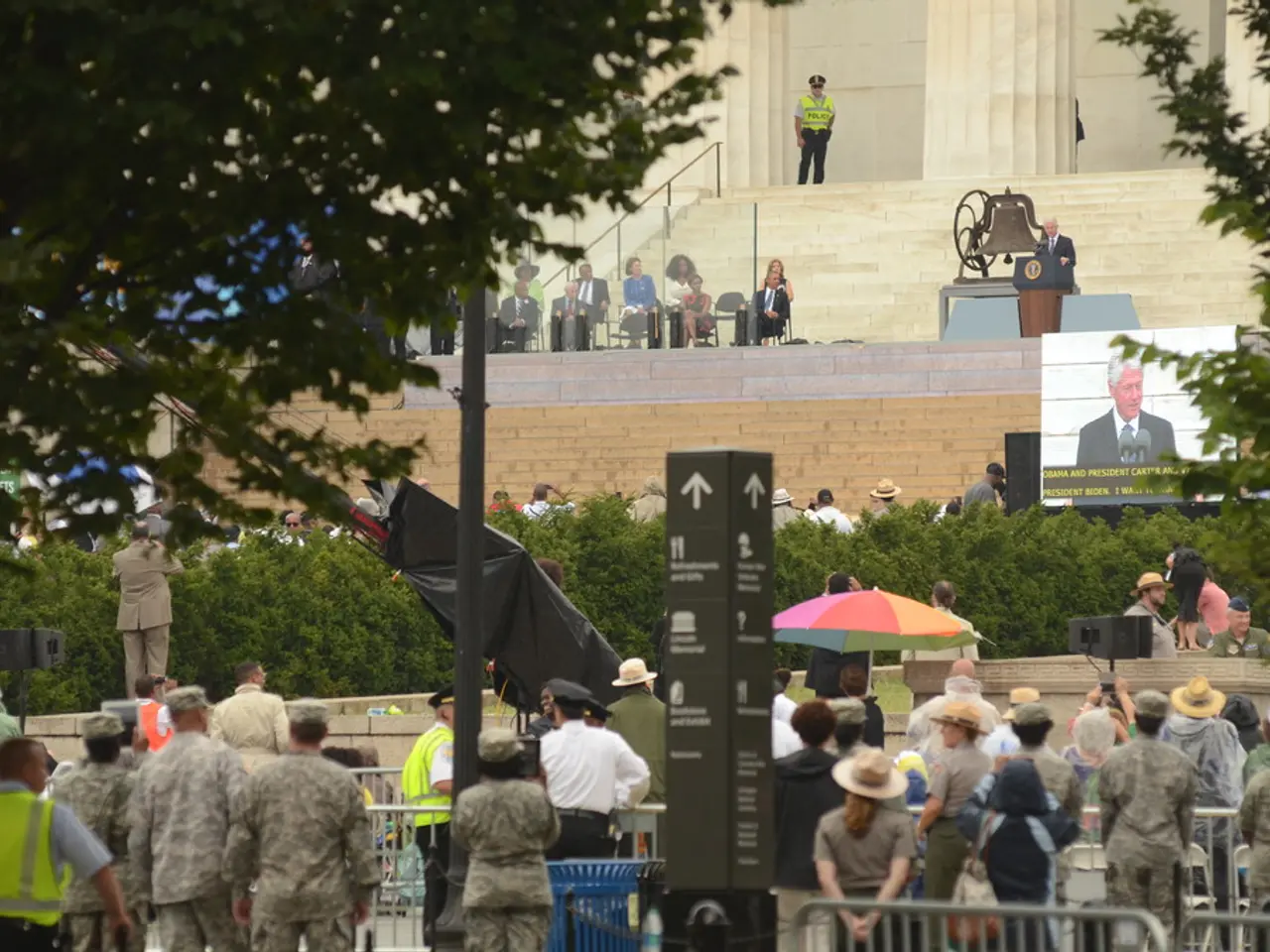Syria's polls should prioritize more than just occupying positions
Syria Announces Indirect Parliamentary Elections for September
Syria's transitional authorities have announced indirect parliamentary elections for September 2025, marking the first such elections since the fall of Bashar Al Assad's government. The upcoming elections will be conducted under a provisional, indirect electoral system, with two-thirds (140) of the 210 seats to be filled via electoral colleges composed of local experts and community figures, and one-third (70 seats) to be directly appointed by interim President Ahmed al-Sharaa [1][2][3].
Electoral College System and Presidential Appointments
To ensure representation and address political manipulation concerns, the electoral college system decentralizes power, with committees at the provincial level selecting parliamentarians, which is a departure from direct popular vote seen in previous elections. This is intended to reflect local expertise and community involvement rather than blanket centralized control [1][2][4]. The President has emphasized excluding candidates who supported or collaborated with war criminals, as well as those promoting sectarianism or division, signaling an intent to uphold a more inclusive and stable political environment [3].
Challenges to Fairness and Independence
However, challenges to fairness and independence remain. The indirect electoral system and presidential appointments concentrate significant control within the transitional government, which critics argue may limit genuine political pluralism and reinforce elite influence [2][4]. The exclusion of direct popular vote is attributed to pragmatic constraints, including the absence of an updated census, incomplete civil registries, millions of displaced persons lacking proper IDs, and ongoing violence and territorial fragmentation [4][5].
International Monitoring and Candidacy Vetting
International observers will be allowed to monitor the elections, contributing to transparency and credibility efforts [5]. The committee has committed to enforcing representation quotas, including a minimum of 20 per cent for women and 2-3 per cent for people with disabilities [3].
Selecting Representatives and Ensuring Representation
Selecting representatives from regions outside Damascus's authority, particularly Sweida and the north-east, presents challenges. Allocating seats at the district rather than provincial level makes achieving representation targets more difficult [6]. The current 11-member body of the Supreme Committee is more diverse, with seven members formerly affiliated with the formal opposition, two linked to the HTS-led Salvation Government, two independent civic figures, and only two women [7].
Procedural Safeguards and Ongoing Concerns
Several procedural safeguards have been introduced, including a period for submitting objections related to the selection of electoral bodies and candidate nominations. However, there is a lack of clarity on how members will be chosen from areas outside Damascus's authority, and questions remain about who will select and train international observers, and at which stages of the process they will be present [8]. Distrust persists among smaller ethnic and sectarian groups regarding government intentions, underscoring concerns about fair representation and inclusivity [5].
In summary, while the election’s selection and oversight mechanisms attempt to foster decentralized, expertise-based candidature and limit overt manipulation, the substantial role of presidential appointments and indirect voting raise concerns about the full independence and credibility of the process. The government frames these as temporary compromises due to transitional challenges, with hopes for broader electoral reforms post-constitution. International monitoring and candidate vetting aim to enhance transparency and trust, but skepticism remains, especially among minority groups [1][2][3][4][5].
References: 1. Syrian Elections: The Road to Indirect Voting 2. Syria's Indirect Elections: A Step Towards Political Pluralism or Elite Consolidation? 3. Syria's Indirect Elections: A Step Towards Stability or Political Manipulation? 4. Syria's Indirect Elections: Challenges and Opportunities 5. Syria's Indirect Elections: A Step Towards Democracy or Further Fragmentation? 6. Syria's District-Level Electoral Colleges: Challenges for Representation 7. The Makeup of Syria's Supreme Committee for People's Assembly Elections 8. International Observers for Syria's Indirect Elections: Who Will Select Them and What Stages Will They Monitor?
- The indirect parliamentary elections announced for September 2025 in Syria will be overseen by international observers to ensure transparency and credibility.
- The electoral college system in Syria's upcoming elections is intended to represent local expertise and community involvement, but critics argue it may limit political pluralism and reinforce elite influence.
- The subsequent Syrian policy-and-legislation, influenced by the results of the indirect parliamentary elections, could have a significant impact on the country's general-news narrative and political future.








